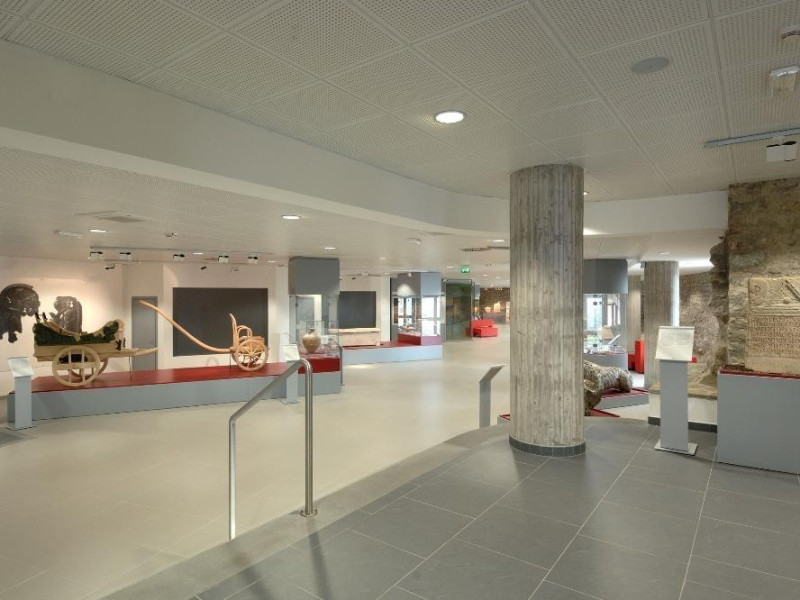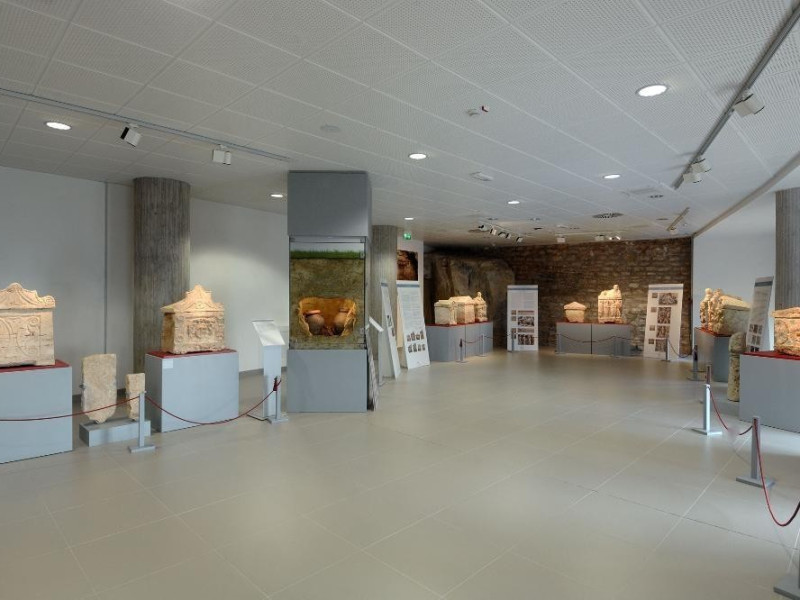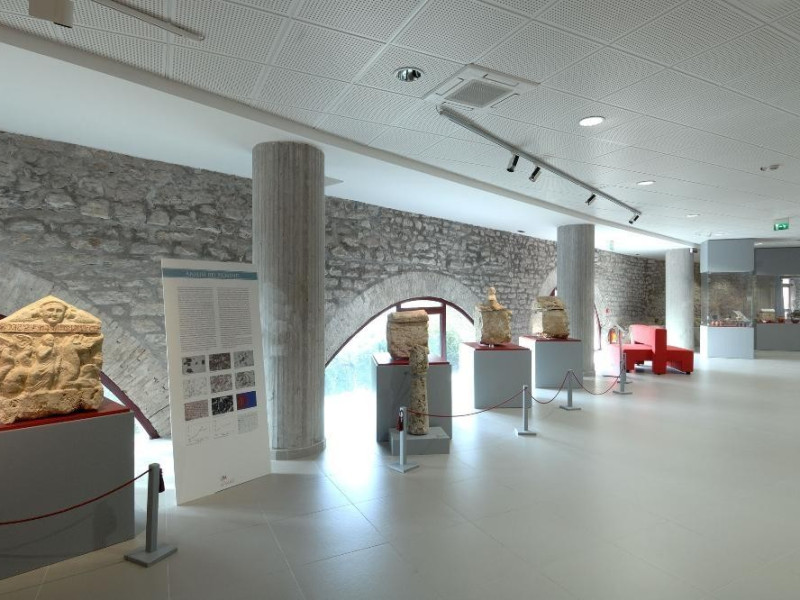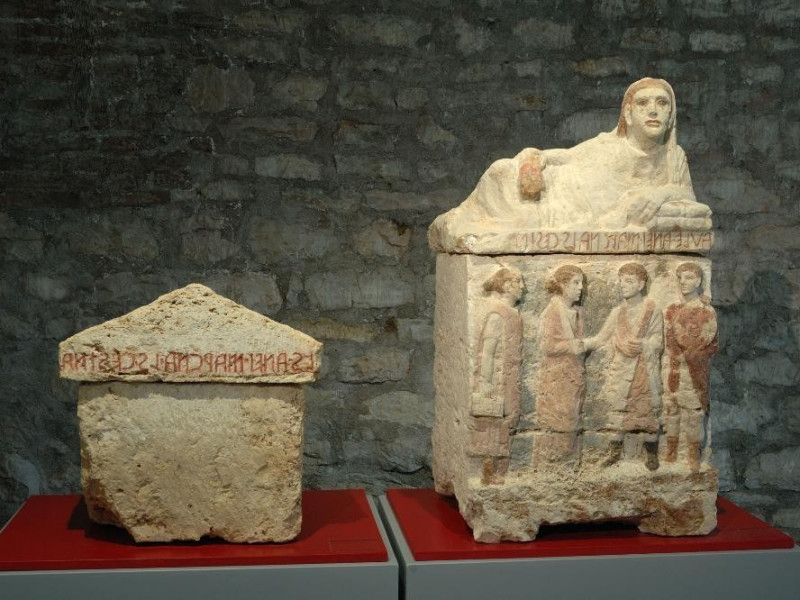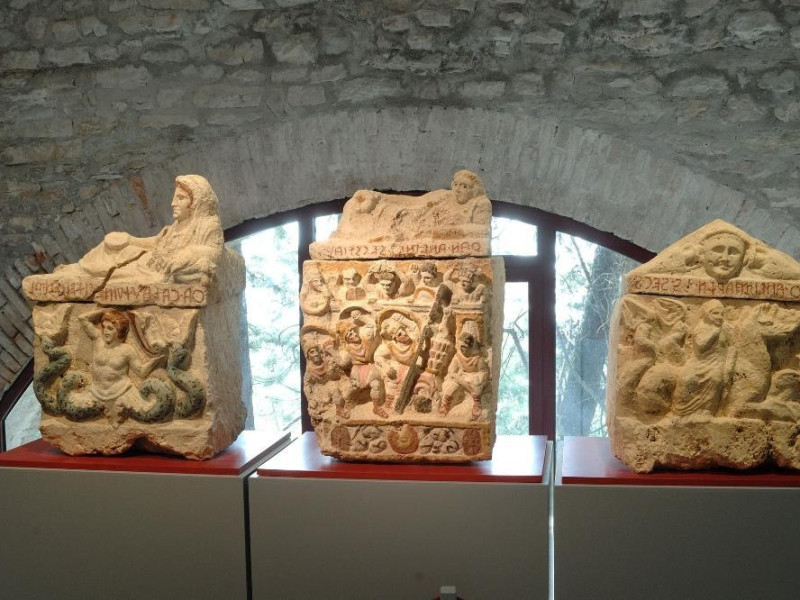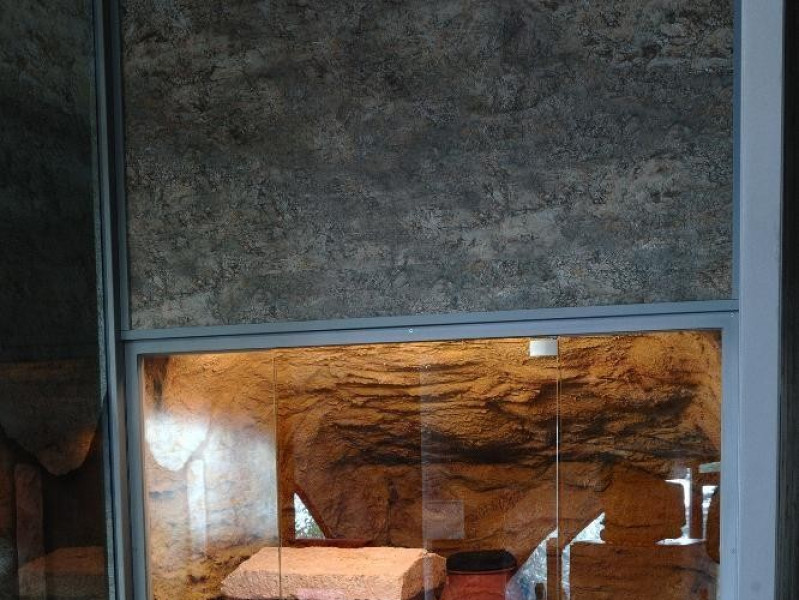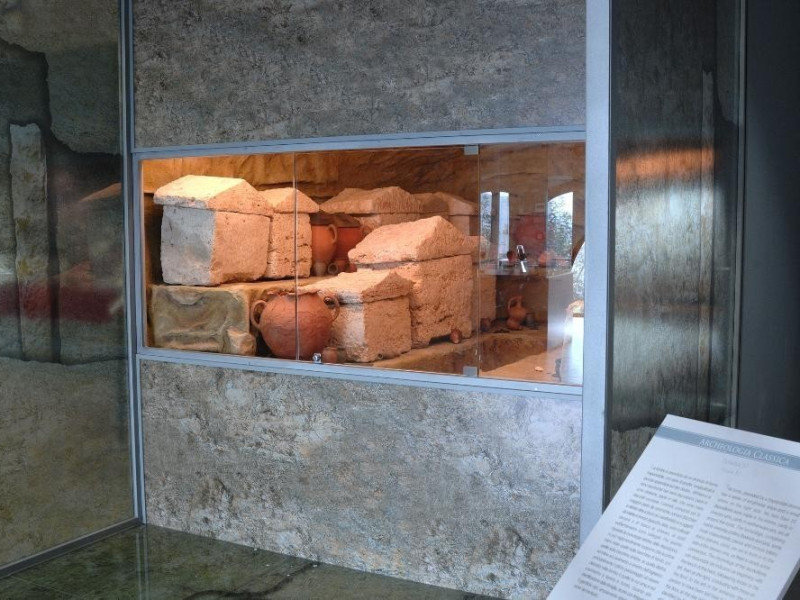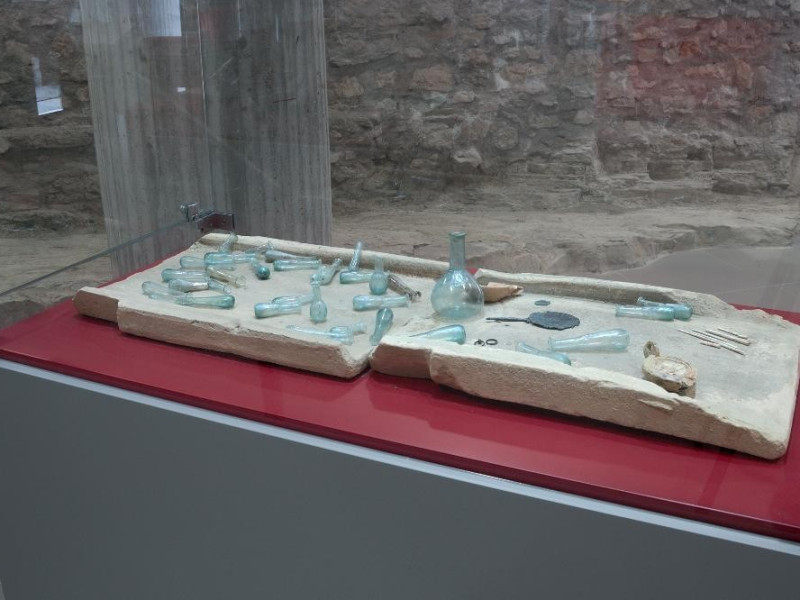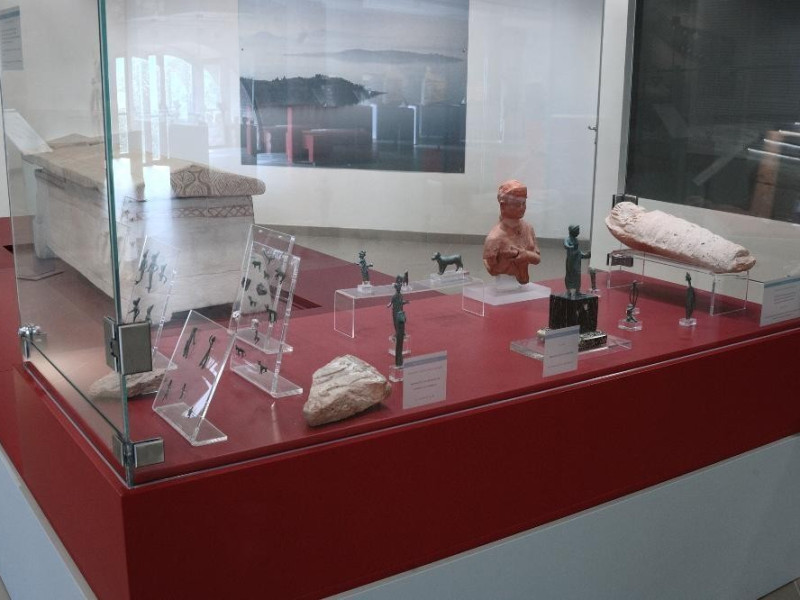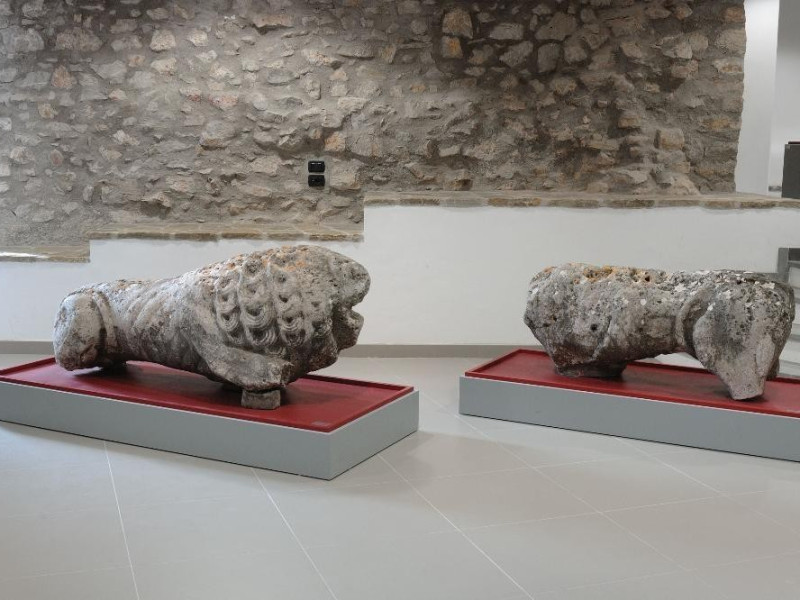Luogo - Museum
Antiquarium
Where
Via Cornaletto, 4/C, Corciano (Perugia)
The Antiquarium
The Antiquarium is located in a beautiful position, at the far end of the western part of the town, outside the 15 century mighty walls of Corciano. Opened in 2009, the museum is subdivided into three sections:
Paleontological, Prehistoric and Proto-historical and Archaeological.
All these sections present finds that had already been collected and held, in a small quantity, inside the rooms of the Town Hall since the 1990s.
In the Paleontological section, it is possible to admire the fossil remnants of the Mesozoic Ammonites from Migiana—Lower Early Jurassic—and that of the Quaternary Mammals—Lower Pleistocene—from Ellera; an
updated didactic apparatus illustrates two of the important and far away stages in the history of the Corciano area.
The Prehistoric and Proto-historical sections, mainly consisting of stone tools collected in several localities of the region, offer an interesting panoramic picture of Umbria, from the Upper Paleolithic to the Iron Age. Two
cinerary vases, dated from the latter period, testify the diffusion of the Villanovan Culture in the territory between Trasimeno Lake and Perugia.
The section dedicated to Classical Archaeology opens with the reconstruction of two princely chariots, found on April 1912 near Castel San Mariano inside a tomb dating from the 6 century B.C.
Then comes the section dedicated to Sanctuaries, simple enclosures or altars built along the main roads of communication and on top of the hills, dedicated to deities, protectors of health, the body, fertility, affluence and livestock breeding.
The Hellenistic period is represented by materials coming from the Etruscan Necropolises of Strozzacapponi and Fosso Rigo, with the reconstruction of three burial sites that have their funerary goods placed in the
original position. The section ends with an interesting nucleus of items from the Roman period, represented by the finds coming from the Roman Villa of Palazzo Grande and the funerary goods from the so called
“tombs a cappuccina", discovered in the area.
